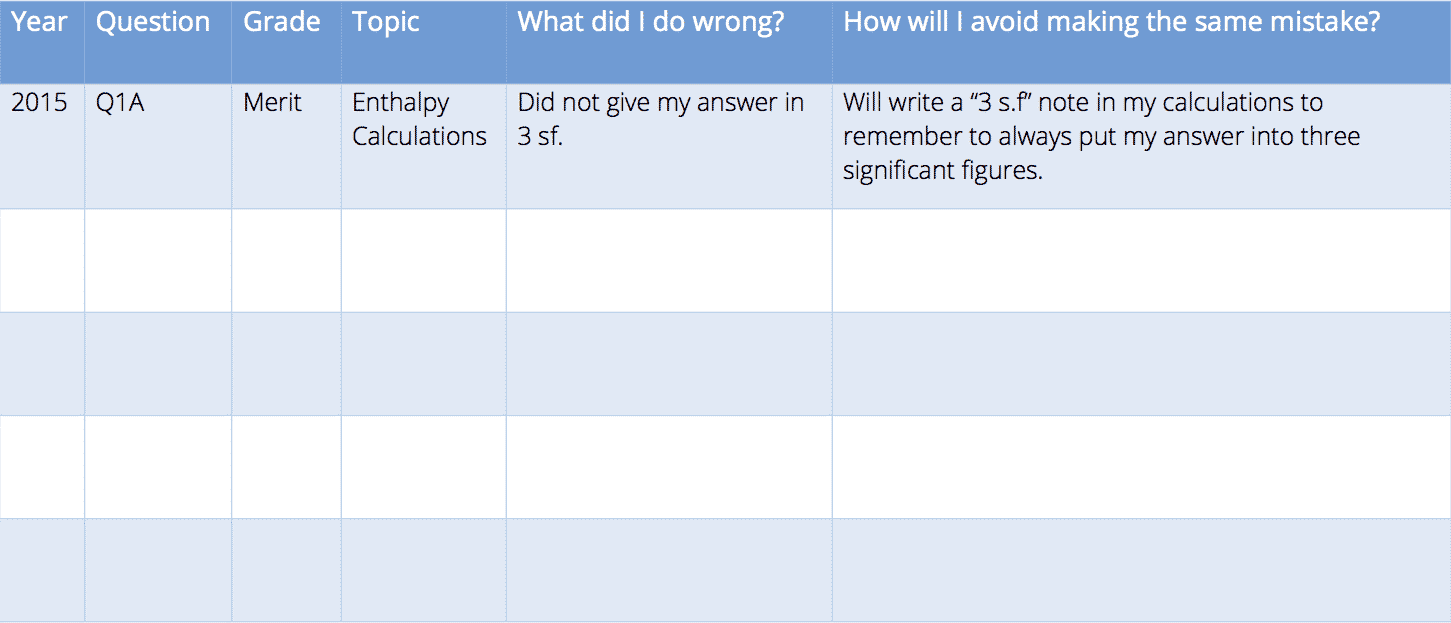An Inspiration Education Extended Guide
It’s getting to that time of the year again: mock exams are around the corner and no one knows exactly how to approach them. You may be feeling anything from apathy (“Why should I even try?”) to anxiety (“If I don’t do well I’ll never get into medical school”).
Luckily for you, we’ve created an extended guide to get you through this tumultuous time. Whether mum’s on your back about studying or you just can’t muster up the motivation to pick up the books for mocks – this guide will help to clear your head on all things mock-exam related.
Why are mock exams important?
Before we reveal the fancy tips and tricks, it’s important to know why mock exams are important (but also not the end of the world). Sounds contradictory right?
Mock-exams can cause a lot of undue stress. It’s easy (but not helpful) to convince yourself they’re the be-all-or-end-all of your academic life. On the other hand, by not taking them seriously you miss out on a great opportunity to test your own skills and discipline for the big ones.
We like to think of them like an extra life in a video game.
Prepare for mock exams like they’re the real thing, but don’t fret if you don’t get the perfect results this time round – you’ve got a second chance coming!
Strategy #1: Practice like you play.
When you play sport, you’re often told to practice like you play. When we’re under pressure, our brain’s default to what’s called “automatic thinking”, meaning we read situations with the same habitual mental strategies that we use during our practiced repetitions.
What this means is that if you practice at 70% focus and intensity, you’re more likely to perform at 70% focus and intensity during the big sports match. Your mental performance will always default back to what it’s used to when the pressure’s on – there’s no way of magically boosting your capacity when it matters.
The same idea goes for mock exams. If you don’t take them seriously, it’s going to be a lot harder to get into the right mindset for the real thing, and much easier to slip back into the same sloppy techniques in your study approach. Use mocks as a practice run to get into a regular, balanced routine of study, exercise, relaxation and sleep. Moreover, use mocks to perfect your study technique.
In saying this, there’s a difference between practicing like you play and coming home from your weekly soccer training crying because you didn’t perform as well as you could have. The beauty of mock exams is that you get the practice without the consequences. Put in the work, and if the results are disappointing, adjust your study accordingly.
Strategy #2: Find out what you do and don’t know.
In the words of Kendrick Lamar:
While an average learner will spend hours rehashing things they already know and ignoring everything that they don’t, an effective learner will quickly evaluate the concepts they’re struggling with and spend time overcoming their weaknesses before perfecting their strengths.
Think of all the exam content that you don’t know like a big, smelly pile of laundry. It’s gross, it seems like a huge task, and you’d much rather leave it to fester somewhere out of sight than deal with it tonight. But then your friends invite you on a trip away, and suddenly it’s too late to do a wash and you have to make do with all the clean clothes you have (the exam content you’re confident with). You may have some clothes for your trip, but you’re missing crucial items like socks and undies, and you end up spending your trip with a whole bunch of offensively mismatched outfits. If only you’d done your laundry earlier.
This is a guilty tendency of the modern student – everything we don’t know makes us feel a bit useless, and so it’s really tempting to just ignore it and focus on the good stuff instead.
Unfortunately, this method doesn’t hold up when it matters. Real, authentic learning often involves confronting this feeling of uselessness – which only gets better with acknowledgement and attention.
How to put this into practice:
- Download a checklist from the NCEA website covering what you need to know for your topic of study (Checklists can also be found from StudyTime, NoBrainTooSmall or from your teacher).
- For each point, test yourself by writing a short explanation of the concept to yourself or answering a few quiz-style questions surrounding the topic.
- Then, rate your knowledge of each concept on the checklist on a scale of 1-5: 1 not knowing anything and 5 being super confident.
- Focus your time on the lowest-rated concepts first so that you have a sound general knowledge of everything – you’ll thank yourself later.
Strategy #3: Complete your study in short sprints.
Prepare yourself for yet another stolen sports analogy:
German coach Woldemar Gerschler invented the idea of interval training after observing how much faster and farther sprinters could run if they trained in short bursts punctured by short breaks. Behavioural scientist K. Anders Ericsson then made waves when he found that this method works in other areas of human performance – such as study.
Studying in small, focused ‘sprints’ followed by small breaks can help promote more intense focus, and allows your brain the time to process and consolidate information you’ve just learned.
Start out small, in 15 minute bursts followed by one 10 minute break, then slowly increase the length of the sprints (and the breaks) over time. Make sure you don’t make the breaks too long – 20 minutes max – so that you don’t completely lose your ‘flow’ between sprints. The great thing about this method is that you can easily slot a sprint in any chance you have – while on the bus or waiting for a gym class to start for example. It’s much more manageable to fit in a concentrated burst of 15 minutes study into your schedule than 150 minutes. Make it a challenge to see how many sprints you can squeeze into your day!
How to put this into practice:
- Set a timer for 15 minutes.
- Put in some solid study until the timer goes off, making sure you’re spending every minute working with no distractions.
- Have a ten minute break to check your phone, walk around, stretch, etc.
- Rinse and repeat.
Strategy #4: Experiment with new study strategies.
Mock exams are the perfect time to test our new methods, and refine the good ones for real NCEA credits. Students rarely try new strategies because most of us only really think about these things right before the exam, so have to resort to lazy, ‘traditional’ methods. An ancient classic is desperately reading over some sloppy notes for a few hours.
Use mock exams as a chance to get creative with your study methods. Rereading notes may provide short-term relief because it’s straightforward, but time and time again strategies like these have experimentally proven ineffective. You can even have fun making your notes colourful and appealing – so long as you’re applying smart methods to process the information you’re writing down.
Here are some links to useful, effective techniques you can try out in mocks:
http://www.learningscientists.org/blog/2016/8/18-1
http://www.learningscientists.org/posters
https://collegeinfogeek.com/spaced-repetition-memory-technique/
https://collegeinfogeek.com/feynman-technique/
How to put this into practice:
- Select one study technique from the list above.
- Spend a few study sprints trying out this technique.
- Test your knowledge. How was the study technique? Rate its effectiveness.
- Think and reflect on the technique. Was it useful? Did you implement fully? What are the advantages and disadvantages?
- If you like the technique, continue using and practicing it.
- Or even better: write down the study technique to keep it in your memory and help to make it more interactive.
Strategy #5: Use ‘failure first’ learning when studying.
There’s a widespread myth in learning spheres that getting the wrong answer is a bad thing. However, recent research has suggested that guessing the wrong answer first actually helps you to remember the right answer – and fosters a deeper understanding of why it’s right.
At Inspiration Education, we call this “fail first learning,” – and it works. Researchers are the University of California have recently hypothesised that by guessing an answer before we know it, our brains become ‘activated’ – and this activation helps us register the correct answer more powerfully.
How to put this into practice:
- Try and complete a textbook/workbook/exam question without looking at the answers or having any notes open. If you aren’t sure or have no idea, give it a guess anyway.
- Find out the right answer and consciously compare this against your original guess.
- Pick up your notes and do a few study ‘sprints’ on the concepts the question is based on.
- Once you feel more confident, give the question a go.
- If you get stuck, do more study sprints.
- Try another question based on the same concept to check that you definitely understand the concept.
Strategy #6: Do past exam papers under timed/exam conditions.
Exams can be awful. It’s often hard to understand how desperately scribbling onto a piece of paper with sweaty palms for 2-3 hours straight can accurately demonstrate your knowledge of a subject. However, for all its flaws, there are some benefits in sitting them.
Try to see exams as an opportunity to practice using and applying knowledge under pressure. Throughout life, there will be many times you’ll have to use initiative, fast-thinking and time management to communicate information under pressure. Exam-taking is a skill, and like any other skill, it gets easier with practice.
The more study you complete under exam conditions, the less daunting they become. When you practice, make sure that you do at least some of it timed, and without your notes available.
Even if the first time you do it it’s a disaster, relish in the luxury of being able to try again with no consequences! By the time you walk through those evil exam-room doors, you’ll be a natural.
How to put this into practice:
- Get an exam question out.
- Put your notes and the answers away.
- Set a timer based on how long the exam is. For example, if the exam is made up of 3 question and you have 60 minutes to do it, you might assign 20 minutes for one question.
- Do as much of the question as you can within the allotted time.
- Mark your answer.
- Do another question and aim to improve your time by trying different approaches.
- If you want to go the extra mile: keep a record of how long it took you to complete each exam and the grade you received. This is an easy way to visualise improvement and evaluate how your exam strategies are working.
Strategy #7: Reflect on exam mistakes.
Most students follow this formula when looking at past exams:
- Stare at the question on the past exam.
- Look at phone to check if Becky has snapchatted back.
- Stare at the answer on the marking schedule.
- Think to self: “yeah, seems logical.”
- Write down answer from marking schedule and move onto the next question.
Despite being possibly the worst strategy of all time, this formula is also one I’ve seen time and time again in my 10 years of tutoring. If you actually want to retain any information, this is the opposite way of doing it. Just don’t.
To help, we’ve made you a table to document your progress with practice past-exams.
The table asks you for the year, question, grade, topic, what you did wrong, and concrete steps you’ll take to avoid making the same mistake.
Even if the idea of more study admin makes you want to throw up, we urge you to give this simple table a go next time you do study with a past-exam. Recognising your mistake is one thing, remembering it in the moment is another.
Writing your mistakes down helps you to remember what to do avoid, and forces you to evaluate strategies for improvement. Print off this template, fill it out when doing your practice papers, and add the table to the top of your study notes so that you have a constant visual reminder of your progress. If you can get into an organised habit of reflection and strategizing you’ll be well on your way to a Merit or Excellence.

Conclusion:
Mock exams are only a small aspect of your overall school experience, but don’t lose sight of their value. Mocks provide an awesome window for trying out new strategies, refining exam techniques and testing the waters for your final exams. Take our tips one strategy at a time, and be sure to reflect on any changes that you notice. Remember to be kind to yourself, and allow a generous amount of time to get the feel for each new technique.
Mock exams don’t have to be a source of extreme stress. If you plan right, study smart and take care of yourself, you might even find yourself enjoying the ride!




